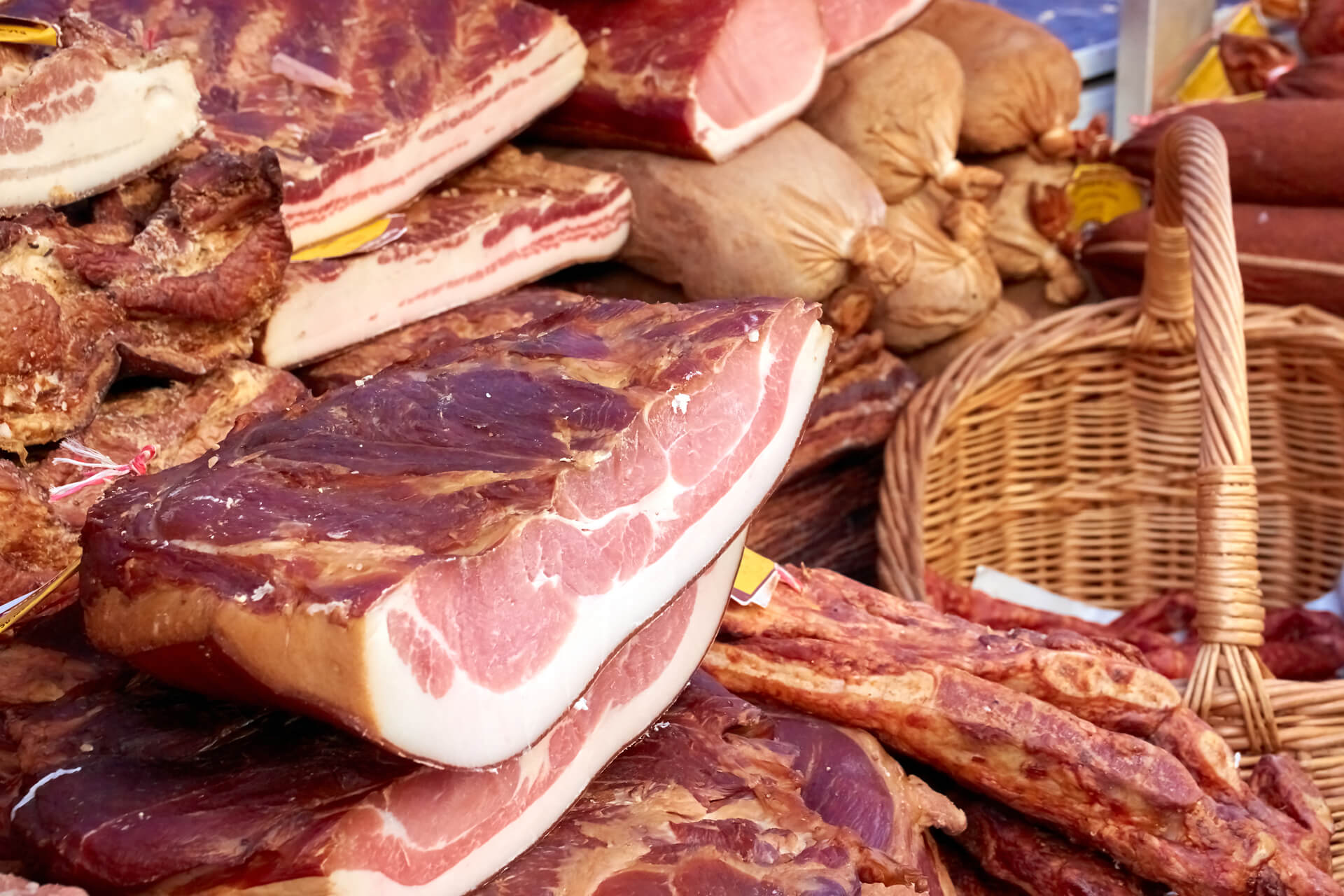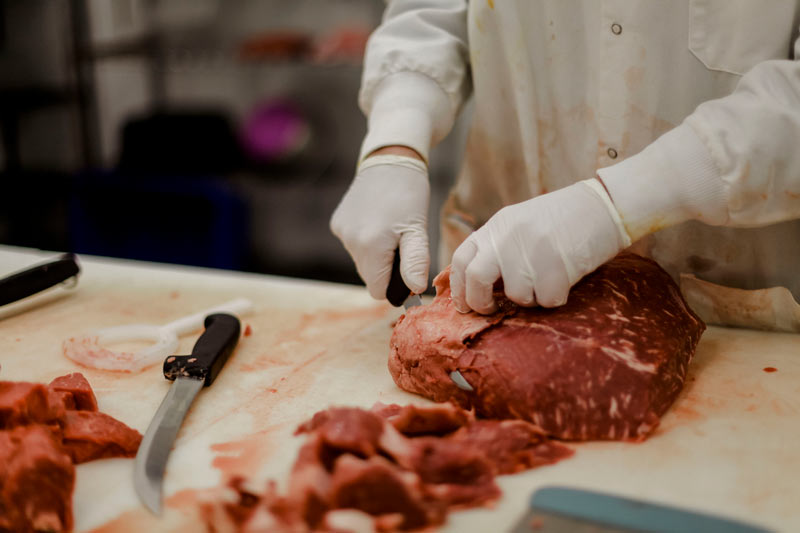Why Buying at a Neighborhood Meat Market Guarantees Fresh, High-Quality Cuts
Shopping at a neighborhood meat market provides distinctive advantages that commonly go unnoticed by customers accustomed to bigger retail chains. These markets offer straight accessibility to fresh, high-quality cuts, an outcome of reduced transport time from farm to counter. This not only enhances flavor but additionally supports neighborhood farmers, fostering neighborhood relationships and sustainable methods. In addition, extensive quality assurance measures make sure that each acquisition meets high standards of security and quality (bagley meat market edwardsville il). The effects of picking neighborhood expand past prompt advantages, motivating a more detailed assessment of what this option truly implies for both consumers and the regional economic climate.
Advantages of Neighborhood Sourcing
In the world of food purchase, the advantages of regional sourcing stand apart prominently. By acquiring meat from regional markets, consumers gain straight access to products that are commonly fresher and much more flavorful than those located in larger, commercial grocery stores. Neighborhood sourcing decreases the time and distance food takes a trip from farm to table, which not only boosts taste yet likewise preserves dietary value.

In addition, local sourcing frequently supplies openness pertaining to the beginnings of the meat. Consumers can make inquiries concerning the farming practices used, animal welfare standards, and whether the meat is grass-fed or organic. This info equips buyers to make enlightened choices straightened with their worths.
Top Quality Control Requirements
Neighborhood meat markets usually follow extensive quality assurance standards that ensure the items used satisfy high safety and quality standards. These requirements usually encompass numerous phases of the meat production process, from sourcing to dealing with and storage.
First, neighborhood markets commonly establish rigorous vendor requirements, ensuring that just credible farms and manufacturers are made use of - bagley meat market edwardsville il. This minimizes the possibility of contamination and advertises higher pet welfare criteria. Furthermore, many neighborhood meat markets execute normal evaluations to confirm that the meat is processed under hygienic conditions, better lessening health risks
Temperature level control is another crucial facet of quality control. Local meat markets often monitor refrigeration systems to preserve optimum storage temperatures, making certain that meat remains fresh and secure for consumption. The execution of traceability systems allows markets to track the origin of their items, supplying transparency and responsibility.
Finally, personnel at neighborhood meat markets are usually educated to recognize signs of wasting and comprehend correct handling strategies. This commitment to top quality control not only raises the general requirement of the meat yet additionally fosters customer trust, making local meat markets a trustworthy resource for top quality cuts.
Supporting Regional Farmers
Supporting regional farmers is necessary for cultivating a lasting food system and enhancing neighborhood durability. When consumers select to shop at regional meat markets, they directly contribute to the incomes of farmers in their region. This not just supports the regional economy but also reinforces the farming market, guaranteeing that it stays dynamic and practical.

Furthermore, supporting regional farmers promotes a feeling of area and link between producers and customers. It motivates transparency in food sourcing and instills count on, as customers can establish connections with the individuals that elevate their food. This straight link inevitably causes a much more involved and notified public, which is critical for promoting for lasting agricultural methods in the future.
Sustainable Practices
Sustainable practices in meat markets play an essential role in advertising environmental stewardship and making certain pet well-being. Regional meat markets usually focus on sourcing their products from ranches that carry out lasting and honest farming methods. These practices consist of rotational grazing, which aids maintain dirt wellness and decreases carbon exhausts, together with decreasing the usage of anti-biotics and hormones in animals.
Furthermore, local meat markets normally stress transparency in their supply chains. Clients are given with information pertaining to the beginning of their meat, allowing them to make informed selections that align with their values. By sustaining neighborhood farmers that exercise lasting approaches, consumers add to the conservation of biodiversity and the decrease of transport emissions related to long-distance meat circulation.
Additionally, numerous regional meat markets take part in waste reduction methods, such as making use of every component of the animal and promoting off-cuts that could otherwise go unsold. By promoting an extra lasting method to meat intake, these markets not only offer premium items yet likewise add positively to the setting and animal well-being. Fundamentally, shopping at a neighborhood meat market straightens consumers with a wider movement towards moral and accountable food sourcing.
Personalized Client Solution
Purchasing at a meat market commonly incorporates more than simply the products provided; it is additionally about the experience and the partnerships developed in between clients and useful link personnel. Individualized customer care is a hallmark of local meat markets, establishing them in addition to larger grocery store chains. Educated staff take the time to comprehend individual consumer preferences, guaranteeing that each check out is tailored to details demands.
Clients benefit from skilled guidance on cuts, food preparation methods, and prep work suggestions, fostering a sense of count on and commitment. This customized communication permits consumers to ask questions and seek suggestions, leading to notified getting choices. Personnel members commonly remember regular customers and their choices, developing an inviting environment that cultivates area connections.
Furthermore, customized service encompasses unique requests, such as custom-made cuts or certain preparation methods, which bigger merchants may not fit. This level of focus enhances the commitment of local meat markets to high quality and customer fulfillment.
In essence, customized customer support not just enhances the purchasing experience yet additionally makes certain that customers leave with the very best items matched to their cooking requirements, making every check out a rewarding one.
Verdict
Supporting neighborhood farmers fosters area partnerships and strengthens the local economy, while lasting practices contribute to ecological stewardship. In addition, the original source tailored client service boosts the buying experience, making regional meat markets a favored option for customers looking for both top quality and moral considerations in their food sourcing.
The implications of selecting regional extend past prompt advantages, triggering a closer exam of what this option genuinely indicates for both consumers and the regional economic situation.
Supporting regional meat markets additionally adds to the regional economy. Local meat markets often keep an eye on refrigeration systems to keep ideal storage temperature levels, making sure that meat continues to be secure and fresh for usage.Neighborhood farmers are commonly a lot more attuned to the specific needs of their communities, growing crops and elevating livestock that line up with local tastes and preferences. Supporting local farmers fosters neighborhood connections and reinforces the local economic situation, while sustainable techniques contribute to environmental stewardship.